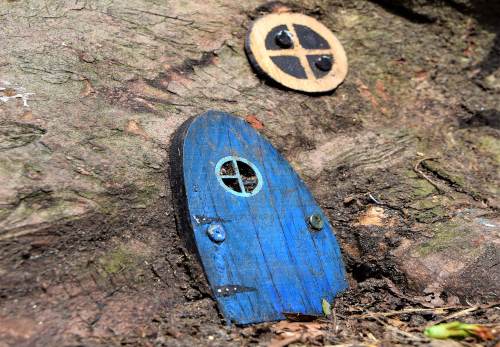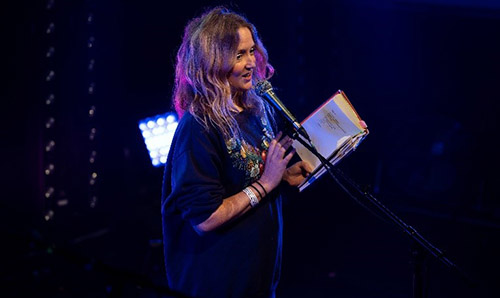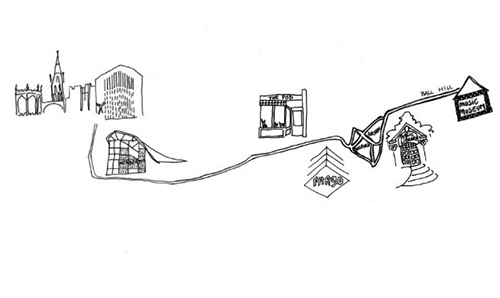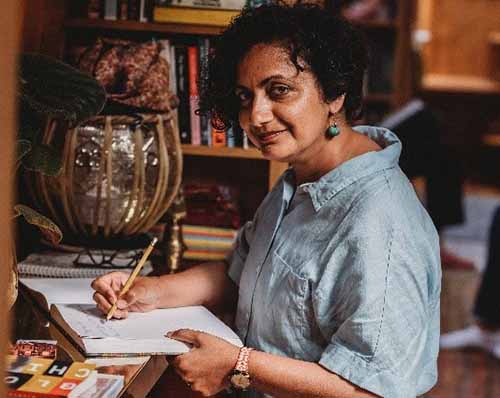Everyday Enchantments: thinking with and about everyday life
5-6 July 2023, University of Manchester
About the conference

The conference invites participants to take up the challenge of thinking about everyday life in all of its diverse facets: senses, bodies, places, emotions and relationships - to name a few. In particular we are concerned with the enchantments of the everyday which speak to the magic and wonder of everyday life as well as the everyday being where many of the big sociological issues are lived out and engaged with. The everyday matters, and we ask how does it matter?
A key inspiration for this conference is how David Morgan approached scholarship and his attentiveness to the minutiae of what people do in their everyday lives. Morgan used observations of everyday life to say something profound about what it means to be human – how we relate to each other and how we live our lives. In the field of family studies, he made a new way of thinking about relationships and family practices possible. Inspired by this approach, we invite participants to submit papers that reflect on how we research and conceptualise everyday lives. We are interested not only in papers about the everyday but also that work with and think creatively about methods of approach and understanding.
Photo: Electra Nanou on Unsplash.
Keynote speakers
The conference will feature two keynote speakers:
Hollie McNish
Hollie McNish

Hollie McNish (poet and author) who has published five collections of poetry and memoir – Papers, Cherry Pie, Plum, Nobody Told Me and Slug...and other things I’ve been told to hate.
Poetry of the Everyday
Whenever I teach poetry, unless it is fantastical or erotic, I tell people, firstly, to stick with what they know.
Whether teenagers in schools or adults in week-long writing retreats, somebody always has the same complaint, or rather, worry. Their lives are not interesting enough; too banal, too everyday for poetry.
One task I often set is to list ten images or actions or thoughts in as close detail as possible, like a photographer zooming in and in as far as poetry can go, based on that morning's routine.
There is always laughter amongst young people, mainly whispers about toilet habits, morning erections, masturbation. So, I have to make an awkward caveat about what is ok to describe in a school writing setting. I always feel a little hypocritical here as I have an entire chapter on masturbation in my last book and do see it as a prime example of the magic of the everyday (or week).
In this talk, I will be discussing some of the prejudices I've come up against in terms of what I see as a belittling of the everyday in poetry and art more generally, reading some of my own work to highlight this, as well as sharing some examples of how ridiculous I find this bias to be through some of my very favourite, and I think, extraordinarily ordinary poems, by the likes of Wendy Cope, Jackie Kay and Andrew McMillan.
Find out more information on Hollie's website.
Books:
Dr Nirmal Puwar
Dr Nirmal Puwar

Dr Nirmal Puwar (Reader in Sociology, Goldsmiths) – author of Space Invaders: race, gender and bodies out of place and co-editor of the books Live Methods (with Les Back) and South Asian Women in the Diaspora (with Parvati Raghuram).
Title: ONE MILE WALK: decompositions and recompositions
This paper is based on a one mile, walked alongside others, including botanists, artists, activists, residents, the non-human and ghosts. Each of these companions inflect how one walks, what is observed and imagined. The statement, how long is a piece of string, can be applied to how long is a one mile walk? Where does it start and stop and how do you measure it?
This walk is multi-scalar, it moves from micro details to large historical changes, from personal intimate biographies, to structural global phenomena. It is not an isolated walk, as it is linked to other places, through infrastructures, networks of relations and power structures. The walk moves back and forth in time, it is an atlas of emotions with layered temporalities. It engages in inter-disciplinary modes of contemplation and hybrid braided writing.
Composed between the spaces of a sociologist who returns ‘home’ and finds herself becoming writer-as-resident. There is an explosion of psycho-geographies, place-based and ecological writings, based on walks. Who writes the city is very much connected to who has a right to the city. As we compose academic prose for the world Braiding Sweetgrass (2020) by Robin Wall Kimmerer can enable us to do a different braid with our writing; in terms of genres, disciplines and vernaculars.
Threaded through the time of now, deep time, the personal, colonialism and migration of plants, soil, animals, human and non-human life, a key note in the writing comes from observing how places and life are simultaneously both decomposing and recomposing.
Biographical Note:

Nirmal Puwar is a Reader, she joined the Sociology Department at Goldsmiths in 2003. She is currently a British Academy Innovative Fellow.
She has a longstanding interest in bodies and space, her book Space Invaders: race, gender and bodies out of place (2004), generated a conceptual frame work for considering the conditions of inclusion within institutions. She brings together a range of methods including, interviews, collaborative, creative and site-specific interventions.
The project Noise of the Past collaboratively re-figured the global war dead and memory with a post-colonial centre point. She co-led the strand on Space Invading in the Global Grace Grant on Gender and Cultural Equalities. At Goldsmiths, she co-founded the Methods Lab to mutate methods and to stretch the walls of the academy. Live Methods, co-edited with Les Back, is one of eighteen collections she has co-edited.
She has co-curated several exhibitions in the Kingsway Corridor at Goldsmiths, including Pierre Bourdieu in Algeria: Testimonies of Uprooting, Space and Gaze: Conversations with Jean Mohr and Edward Said in Palestine, as well as Migrating Dreams and Nightmares.
She is currently writing a collection on a One Mile Walk, whilst processing decompositions and recompositions of multiple forms of life, which will be published by Punctum Press. The writing process has been a journey of collaborations and creative non-fiction, see: Mint, Ball Hill, Meeting John Berger.
Additional information
Accommodation suggestions for Everyday Enchantments conference
Accommodation suggestions for Everyday Enchantments conference
5-6 July 2023
The Conference venue is University of Manchester (Samuel Alexander building) Sat Nav, Oxford Rd, M13 9PL.
The affiliated hotel for the University is the Hyatt Regency Manchester (nearest to Conference venue) with both apartments and rooms.
The University preferential rate for conference visitors starts from £145.08 per night including breakfast.
Click on ‘Individual visitors’, tick to confirm you are attending a conference. This will take you to the Hyatt Regency website. Choose 'Book Now'; in 'Special Rate' choose 'Corporate Code'. Our code is 138884.
Other nearby star rated hotels:
Travelodge Manchester Upper Brook Street
From £70.99 per night
Express Holiday Inn Oxford Street Manchester
From £86.00 per night
Park Inn (Radisson)
From £60 per night
Premier Inn Portland Street
From £108 for two nights
Kimpton Clocktower
From £207 for two nights
Fees and Payment
Fees
We subsidise the conference fees to keep them as low as possible. Standard fees are, broadly speaking, for anybody who has funding to cover this kind of cost, and concessionary fees are for people who don't e.g. self-funded PhD students, retired researchers, unwaged.
Any questions about fees, please just email everydayenchantments@manchester.ac.uk. If you have a disability and need to bring an assistant to the conference please email us too, so we can make sure we make any necessary preparations to help you in advance (and most importantly so that their name is on the list for lunch!).
We will endeavour to answer your individual enquiries about fees ASAP.
| Full conference 5th and 6th July | One day only |
|---|---|
| Standard full fee £180 | Standard fee one day £130 |
| Concessionary full fee £90 | Concessionary one day fee £70 |
Please complete your registration and payment by Friday, 16 June 2023.
You can book your tickets via the University online store. Payments can be made electronically by credit/debit card using the link below:
Please contact us if you wish to pay by bank transfer or by invoice: everyday.enchantments@manchester.ac.uk.
Once we have received your payment, you will receive an email requesting your full registration details and dietary and access requirements.
